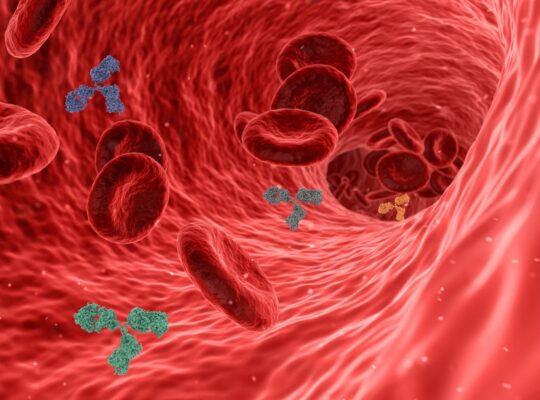
Prioritizing mental health is more important today than ever before. In fact, studies show that nearly 1 in 5 adults in the U.S. experience mental illness each year (source needed). Mental well-being affects every aspect of our lives, from relationships to work performance. This article focuses on practical strategies to enhance mental health, aiming to help you improve your overall well-being.
Understanding Your Mental Health Needs
Identifying Stressors
Recognizing what stresses you can be the first step towards better mental health. Common stressors include work pressures, relationship issues, and financial worries. For instance, someone might feel overwhelmed by a tight deadline at work, leading to anxiety and fatigue. Identifying these triggers is crucial for managing them effectively.
Recognizing Mental Health Conditions
Many people face mental health conditions like anxiety and depression. Anxiety can manifest as constant worry or panic attacks, while depression might show up as persistent sadness or loss of interest in activities. According to the National Institute of Mental Health, approximately 19% of U.S. adults experience anxiety disorders, and about 8% have depression (sources needed).
Seeking Professional Help
Getting support from mental health professionals is vital. Therapy can provide tools to cope with challenges. As Dr. Jane Smith, a licensed psychologist, says, “Therapy helps individuals understand their thoughts and emotions, leading to healthier coping strategies.” Seeking help can lighten the mental burden.
Lifestyle Changes for Improved Mental Well-being
The Power of Exercise
Regular physical activity can greatly enhance mental health. Research indicates that exercise releases endorphins, which are natural mood lifters. Even a short daily walk can make a significant difference in your mental state (sources needed).
Nutrition and Mental Health
What you eat influences your mood. A balanced diet rich in fruits, vegetables, whole grains, and healthy fats promotes better brain function. Here are some tips for healthy eating:
- Opt for whole foods, avoiding processed snacks.
- Stay hydrated with plenty of water.
- Include omega-3 fatty acids, found in fish and nuts.
Sleep Hygiene
Quality sleep is essential for emotional well-being. Poor sleep can lead to irritability and impaired thinking. To improve sleep habits, consider these tips:
- Stick to a regular sleep schedule.
- Create a calming bedtime routine.
- Make your bedroom a comfortable sleep space, free of screens.
Mindfulness and Stress Management Techniques
Mindfulness Meditation
Mindfulness meditation involves focusing on the present moment without judgment. It can reduce stress and anxiety. For example, a busy executive found that just 10 minutes of daily meditation calmed his mind and improved his focus.
Deep Breathing Exercises
Deep breathing can quickly reduce stress. Here’s how to do it:
- Sit comfortably and close your eyes.
- Inhale deeply through your nose for a count of four.
- Hold your breath for four counts.
- Exhale slowly through your mouth for a count of six.
- Repeat for a few minutes.
Stress-Reduction Techniques
Other methods, like yoga or progressive muscle relaxation, can also help. These techniques allow your body to release tension and promote relaxation.
Building Strong Social Connections
The Importance of Social Support
Strong social connections boost mental well-being. Research shows that people with supportive relationships experience lower stress levels and better mental health (sources needed).
Nurturing Relationships
Strengthening bonds with friends and family can improve your mental outlook. Consider these actionable tips:
- Schedule regular catch-up sessions.
- Express gratitude and appreciation.
- Engage in shared activities or hobbies.
Building New Connections
If you’re seeking to meet new people, try joining clubs or attending community events. Volunteering is another great way to make new friends while contributing to the community.
Cognitive Behavioral Techniques for Positive Thinking
Identifying Negative Thoughts
Understanding cognitive distortions, such as all-or-nothing thinking, helps identify negative patterns. For example, thinking, “If I don’t succeed, I’m a failure” can be damaging.
Challenging Negative Thoughts
Reframing negative thoughts into positive ones is a powerful tool. Instead of saying, “I’ll never get this right,” try, “I’ll do my best and learn from my mistakes.”
Cognitive Restructuring
Cognitive restructuring involves changing negative thinking patterns into more constructive ones. As Dr. John Doe, a therapist, notes, “Changing how we think can transform how we feel.” This technique can lead to improved emotional health.
Conclusion: Taking Charge of Your Mental Health Journey
To recap, understanding your mental health needs, making lifestyle changes, practicing mindfulness, building social connections, and applying cognitive behavioral techniques are all essential steps toward better mental well-being. Prioritizing your mental health is fundamental in today’s fast-paced world. Start implementing these practical strategies and take charge of your mental health journey today. Your well-being matters.







